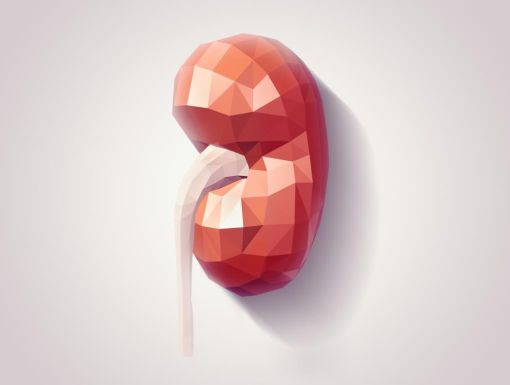
10 Reasons to Love Your Kidneys and More
Most of us go through our lives without thinking twice about the two important bean-shaped organs in our body until they start to malfunction. These organs are our kidneys, which are fist-sized and sit below the ribcage on either side of your body. One primary function of the kidneys is removing waste, extra blood and water, which forms urine.
While kidneys are one of the most important organs in the human body, it is also one of the most interesting organs. Here are three important facts about your kidney:
- Most humans are born with two kidneys. If one kidney is removed and the remaining kidney can make up for the loss, the body will only lose approximately 25% of its overall kidney function. The older you get, the more difficult this is.
- On average, the kidney only accounts for approximately 0.5% of the body’s weight, but it receives more blood than all other organs except the liver and the heart.
- Nephrons live within the kidneys and are the filtering units. Each kidney has, on average, 1 million to 2 million nephrons. If the nephrons were removed from the body and laid next to one another, it would cover approximately 10 miles.
10 reasons to love your kidneys
There are many reasons why you should love your kidneys because they have many essential functions. The top 10 reasons include the following:
- The kidney is responsible for regulating fluid balance. The regulation is accomplished by reacting to changes in the body’s water level throughout the day and adjusting accordingly.
- Did you know high blood pressure is the second leading cause of kidney failure? This is because, over time, high blood pressure that is uncontrolled causes the arteries around the kidneys to harden, narrow or weaken, and this results in damaging the blood flow. The kidneys help regulate blood pressure within the body by increasing it if it drops too low.
- The kidneys help to prevent anemia by producing a hormone called erythropoietin (EPO), which tells your body to make red blood cells.
- Over 200 liters of blood are filtered through the kidneys each day, removing over 2 liters of water, wastes and toxins. Approximately 2 quarts are removed from the body as urine, while the remainder stays in the body.
- The kidneys are also able to generate vitamin D in the body. The skin primarily produces vitamin D when it is exposed to sunlight. If the skin fails, the job is then passed on to the liver. If the liver fails, the job is handed to the kidneys. Vitamin D helps maintain calcium to keep your bones strong.
- The kidneys act as filters by removing toxins and waste from your blood.
- All medications are eventually eliminated from the body and this is done through the kidneys in the form of urine.
- Electrolytes are regulated in the body through the kidneys, such as potassium, sodium, magnesium and calcium. The kidneys maintain this balance by fluctuating sodium levels as the body needs. Should the level of electrolytes in your blood become too low or too high, this will lead to an imbalance that can affect normal bodily functions.
- The kidneys work with the lungs to maintain acid levels from food intake within the body.
- An important hormone is produced in the kidneys called renin. Renin helps to keep blood pressure at an average level and maintain healthy levels of potassium and sodium within your body. When your blood pressure drops too low, renin is released into your bloodstream.
Keeping your kidney healthy
Now that you have read the top 10 reasons to love your kidneys, it is important to understand the importance of your kidney health. Here are some tips to keep your kidneys healthy:
- Stay active and maintain a healthy weight
- Regular exercise is beneficial in all parts of your life, but it can help to prevent chronic kidney disease, maintain your blood pressure and boost your heart health. Finding an activity, you can have fun with and stay busy is important.
- Maintaining a healthy weight is crucial when it comes to kidney care. Being overweight forces your kidneys to work harder and filter waste above an average level. When there is more of you, your kidneys must work harder to keep up. Maintaining a healthy weight allows your kidneys to function better.
- Maintain a healthy diet
- Eating healthy and maintaining a healthy diet can help regulate your body weight, lower your blood pressure and prevent diabetes and heart disease.
- It is also important to reduce your sodium intake. Around 2 to 3 grams of salt is recommended daily, including salt already in your foods. One way to reduce your sodium intake is to prepare foods yourself and limit the amount of processed or prepared food you eat.
- Control and monitor your blood sugar
- It is important to check your blood sugar level for your general body checkup. This can be because over half of the people who have diabetes do not know they have diabetes. People with diabetes or conditions that cause high blood sugar are at a greater risk of kidney damage. Keeping your blood sugar under control reduces the risk of damage to your kidneys.
- Monitor blood pressure
- High blood pressure can cause damage to your kidneys. The effect on your body can be substantial if high blood pressure occurs along with other health problems such as heart disease, diabetes or high cholesterol.



